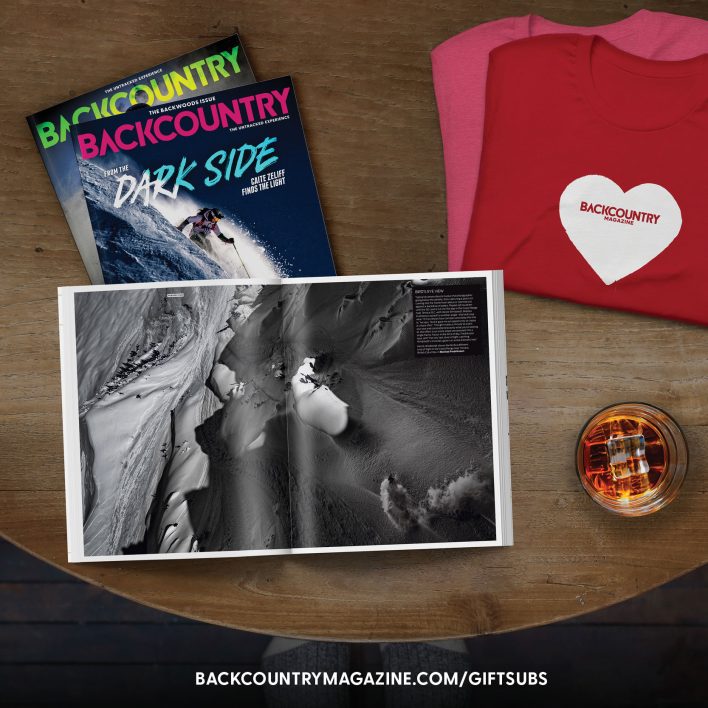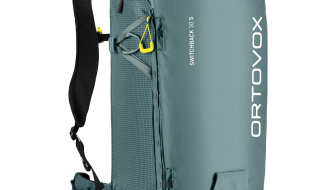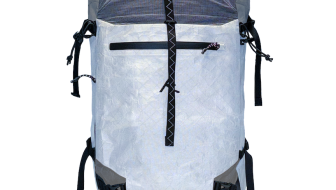On the cover of the January Community Issue is skier and explorer Chad Sayers, buried deep in the powder of Whistler, B.C., where he currently resides. A native Canadian, Sayers was born and raised in British Columbia and still carries with him a love of the mountains of Western Canada. And even with the vast landscapes of home, he’s cultivated an insatiable taste for travel that’s taken him to the far reaches of the globe.
We recently caught up with Sayers to learn more about what inspires him to push his mental and physical limits in the name of exploration and what compels him to return home. Here’s what he had to say.
![“After a couple of dry days in Whistler, the snow finally came,” says photographer Daniel Rönnbäck of his first trip of the winter with skier Chad Sayers. “This was on our last run of the day. We skied from the top of Blackcomb Peak down to the valley in true waist-deep powder. It was the start to some really deep days.” [Photo] Daniel Rönnbäck](http://backcountrymagazine.com/wp-content/uploads/2017/01/sayers_embed.jpg)
“After a couple of dry days in Whistler, the snow finally came,” says photographer Daniel Rönnbäck of his first trip of the winter with skier Chad Sayers. “This was on our last run of the day. We skied from the top of Blackcomb Peak down to the valley in true waist-deep powder. It was the start to some really deep days.” [Photo] Daniel Rönnbäck
Chad Sayers: I came to Whistler 17 years ago when I was chasing my dreams as a skier. I chose Whistler as a hub because it was a great place to stay central, organized and healthy, but over that time I have been pretty transient.
For a long time, I had a love and passion for Whistler and the mountains here, but that love has ebbed and flowed over the years. For a time, I got burned out, and I wasn’t connected to the skiing here in Whistler anymore. The mountains became small and uninspiring, because I was able to go to so many place in the world. When that happened, I left and moved to La Grave, France for a couple of years. But since then, I have come back and have formed a really great base of friends and community here in Whistler, where my home situation is also really great now.
BCM: How does being transient affect how you perceive the idea of home?
CS: I have been traveling for 20 years straight and have been spending two or three months at home a year, so there is this constant in and out. I go on these crazy trips, and then I come back to my room, back to my kitchen, and I always experience this period of reflection when I return. I love Whistler, but I have had a lot of cycles here. I don’t actually ski here much anymore, because I get these other opportunities to explore. I have opportunities all over the place with different people, in different landscapes, so Whistler has become a place where I return to regroup.
BCM: What got you traveling as much as you do?
CS: It was something that was a mix of fate and destiny, and it was constantly manifesting. The more I saw of the world, the more I wanted to see. The more mature I got, the more I was drawn to other cultures and landscapes around the world, and it picked up momentum with every trip I took.
BCM: Have there been any particularly memorable periods in your time traveling?
CS: I had a really long physical struggle where I had to deal with some serious injuries. I had ten years where I had some really bad pain. Jordan Manley was there through a lot of that, but we continued to shoot and film A Skier’s Journey through it all. But then there was a point where he had his concussion, and then I went through my own stuff too, right around when I moved to La Grave, so we parted for a while and we each had our own stuff going on. My solace was La Grave, where I was trying to get my skiing and my passion for the sport and for the mountains back. La Grave was the place where I always ran to, and I keep going back to more than anywhere else I have traveled.
Crossing Home: A Skier’s Journey | Series Finale from Jordan Manley on Vimeo.
BCM: What resonates with you when you travel to La Grave, the mountains or the culture?
CS: It’s the whole package. It’s what La Grave brings out of me in terms of my connection to skiing and living in this way. It pulls out the soul of skiing in the skier [at least for me].
BCM: What are other locations that really speak to you?
CS: Patagonia. That is a place that I have been going back to for many years, just doing random expeditions or adventures. I have also had some pretty awesome adventures in the republic of Georgia, Baffin Island— it is one of those places that I would love to be able to go back to—and then my home, British Columbia. There are so many amazing places to go and appreciate in the world.
BCM: Have you honed your technique for efficiently preparing for travel on this scale?
CS: I am not a religious person but I am extremely spiritual, and I believe that life unfolds the way it’s meant to. So in terms of planning these really big trips, I just have to appreciate and love the moment. I go through the process of what has to happen to get to these far off places, meet the right people, climb the mountain, survive being there, all while staying healthy.
I am not a planner. That is to say that I plan a bit, but I am much more intuitive, and I rely on my instincts rather than trying to rely on computers and other fancy tools for travel.
But when I travel with other people like Jordan Manley, this dynamic is different. Without him, it all would have happened in a different way. He is more calculated and educated, and he wants to be a bit more organized and prepared. I think that is why we complement each other. I have done so much traveling, and a lot of it is not skiing related. A lot of those travels are on my own. I go surf, or I go on photo adventures. These trips inform my knowledge of travel.
BCM: What has it been like dealing with both the challenges and rewards of these trips?
CS: I think that because I am a little bit more inclined to take what I get, I see the good and the bad and the blood sweat and tears as a beautiful thing. I think that it makes it a lot easier when you look at life that way, when you don’t try and control everything. You just have to accept what you get. From there, I have been OK with whatever happens. I have gotten better at being OK with climbing a mountain, losing a friend, breaking a leg. I have had so many injuries over the course of my life that have made me appreciate stillness and not being able to do what I want to do in the moment. That has taught me a lot of lessons about who I am. I see that as being a gift, being able to reflect when things are bad.










Related posts:
The Uphill Agenda: Aspen’s mayor ushers in a new wave of ski-focused economy
Medical Alert: Dealing with unexpected emergencies in the mountains
Reggae Turns: How two Vermont skiers are reshaping backcountry terrain throughout the state
From Granite to Grizzlies